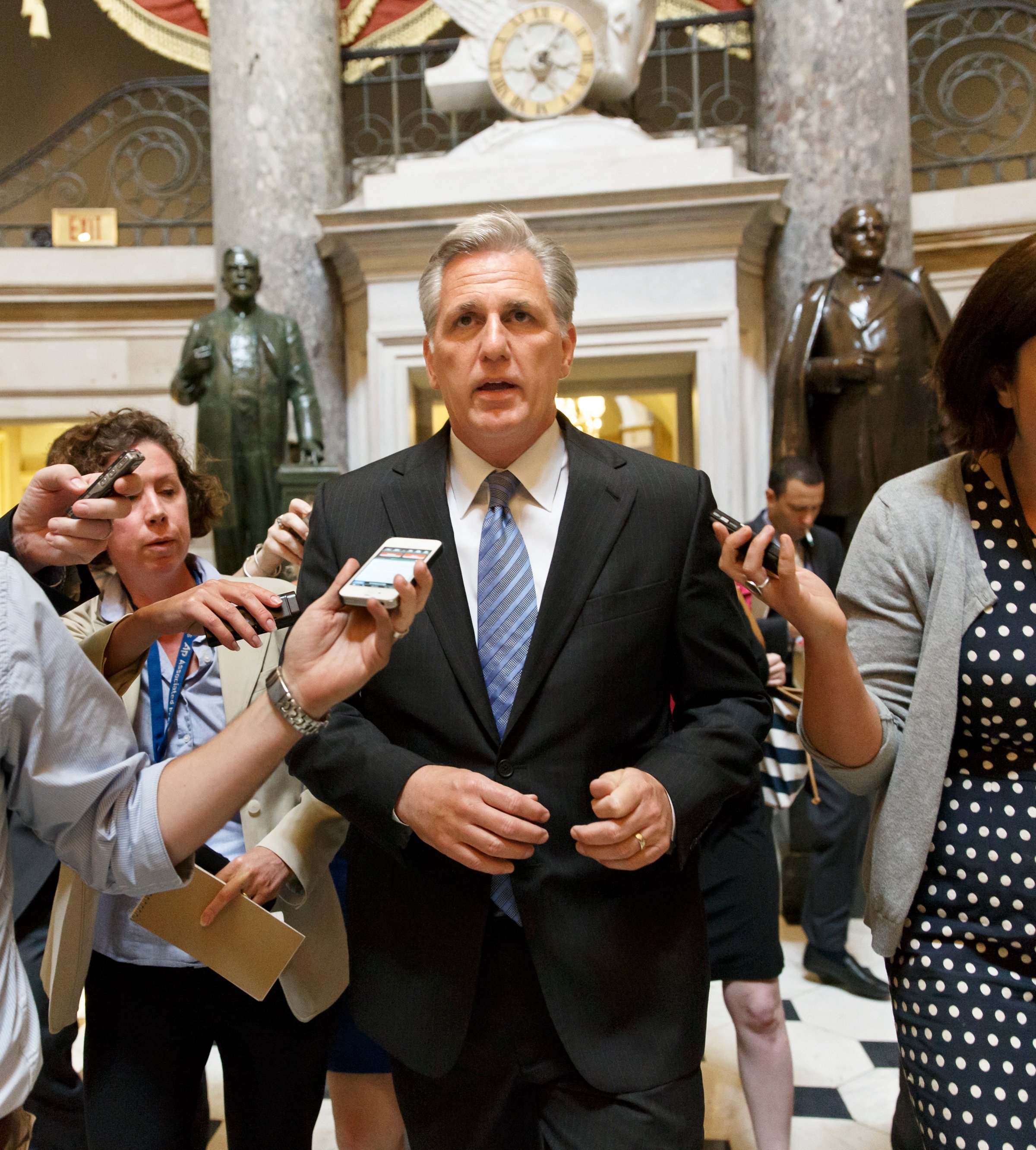
The House Republican conference will likely vote House Whip Kevin McCarthy to the majority leadership post soon to be vacated by Eric Cantor on Thursday afternoon, capping an extraordinary 7-and-a-half year rise for the friendly Californian.
In the days after Cantor’s stunning defeat last Tuesday, McCarthy moved quickly to become the Virginia representative’s heir apparent, consolidating support and stamping out significant challenges from the right. And how will the House change under McCarthy? Not much, according to several congressmen that spoke to TIME.
“Why would it?” said Rep. Trey Gowdy (R-S.C.). “I wouldn’t expect it to change at all.”
“[McCarthy and Cantor] have different styles, but a similar philosophy,” said Rep. Randy Hultgren (R-Ill.). “I think it’ll be not that different. I think it’s just a renewed focus on listening to each other [and] keep trying to get to 218 [votes].”
One major difference between Cantor and his likely successor is that McCarthy represents a greater population of Latinos in his California district than Cantor did in Virginia. McCarthy—whose spokesman did not respond to a request to comment on this article—favors a path to legal status for undocumented immigrants, though not full citizenship, which gives some hope to pro-reform activists.
But representatives say that McCarthy’s election wouldn’t alter the Republican Party trajectory on immigration reform, which it has largely avoided talk of since releasing a set of broad principles in January. “That’s an issue that’s broader than one person,” says Rep. Pat Tiberi (R-Ohio). “In fact all those big issues, whether it’s entitlement reform, tax reform, immigration reform, whatever reform, it’s not only the Majority Leader who determines [what happens.] It’s the conference, it’s a larger group and a larger effort than just one person.”
That sense that a vote for McCarthy would be a vote for the status quo has animated his lone rival, long shot candidate Rep. Raul Labrador (R-Idaho). “McCarthy’s promising change,” the Tea Party favorite told TIME. “If you want change, you got to look at past actions to realize that there isn’t going to be any real change.”
So what would Labrador change? The Idaho congressman pledged in the closed door “candidate forum” Wednesday morning that, if he won the conference’s votes, he would distinguish himself by empowering the rank-and-file members. “I want members of Congress to be more relevant than the staff,” he said, according to the transcript prepared for delivery. “Why are we even here if the leadership staff is going to make all decisions any way?”
But that desire for change only goes so far. Labrador brushed away questions about whether he would move faster than the current leadership on immigration reform, aspects of which he has supported in the past. “At this time we shouldn’t even be talking about immigration reform,” he said, in an interview.
Democrats insist they have no preference for Labrador or McCarthy, saying that it would be difficult to work with any Republican leader due to the ideological splits in the conservative conference. “It doesn’t matter who’s in the leadership on the Republican side,” said Rep. Steven Israel (D-N.Y.), whose job it is as Democratic Congressional Campaign Committee chairman to win back the speaker’s gavel as soon as possible. “You can change the note on the door but they’re still going to follow the base.”
More Must-Reads from TIME
- Donald Trump Is TIME's 2024 Person of the Year
- Why We Chose Trump as Person of the Year
- Is Intermittent Fasting Good or Bad for You?
- The 100 Must-Read Books of 2024
- The 20 Best Christmas TV Episodes
- Column: If Optimism Feels Ridiculous Now, Try Hope
- The Future of Climate Action Is Trade Policy
- Merle Bombardieri Is Helping People Make the Baby Decision
Contact us at letters@time.com